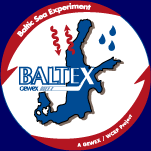Aftermath page
Thank you for a very good and inspiring conference!

Please find here the scientific outcome and some photos of the conference.
Conference Summary
by Jan Harff
In 2009, a first conference on regional climate change in the southern Baltic region was held at Szczecin, based on the fact that remarkable progress has been achieved in understanding the climate controlling system on the global scale, but that the requirements of today consist of a spatial downscaling of global processes to the regional scale. This first conference pointed to the need of future regional climate change projections to be used for management and decision making on the regional and local level in order to mitigate negative effects of climate change to the environment and the society. Those future projections require a deeper understanding of the regional climate dynamics and its driving forces. In order to foster research on the regional scale, but also in order to continue the discussion between scholars and stakeholders, a follow up conference dealing with the climate change effects for the Southern Baltic region was held in Szczecin in May 2014. This conference highlighted the topics:
- Session A: Reconstruction of paleo-environmental change: Geological proxies and numerical modelling
- Session B: Modeling of climate change: How reliable are future projections?
- Session C: Natural dynamics of the coastal zone and the socio-economic response from prehistoric to recent times
- Session D: Climate change and regional planning
- Session E: Changing Baltic Sea coasts and their sustainable protection
More than 70 scientists participated in the conference, jointly organised by the University of Szczecin and the International Baltic Earth Secretariat at the Helmholtz Centre Geesthacht, Germany. The participants came from countries around the Baltic Sea (Belarus, Estonia, Germany, Latvia, Lithuania, Norway, Poland, Russia, Sweden), but also from China. The latter ones were invited in particular to point by their presentation to the increasing importance of comparative studies for a deeper understanding of the Baltic Sea system.
Compared to the first conference in 2009, three tendencies are visible in the presentations and discussions and should be mentioned in conclusion of the 2014 conference:
- Marine processes of the Baltic Sea are increasingly regarded as components of a more complex system including onshore and offshore compartments and their interaction. This land-sea interaction has been studied for the whole southern drainage system of the Baltic Sea basin, as participants from the Baltic Sea and East European countries, including Belarus, have shown. This holistic view holds not only for current atmospheric and hydrologic processes, but also the reconstruction of paleo-environmental and –climatic history of the Baltic Sea basin. This history can be studied in temporal high resolution because of new methodologies in facies analysis of lake- and marine sediments. New insights into the interrelation between natural and anthropogenic effects in nutrient deposition to the Baltic Sea is provided by applying regional modeling methods, parameterized by basin-wide monitoring data.
- In coastal analyses, special attention is paid to the role of extreme storm events. Cause-effect relations between strong storms and coastal morphogenesis are studied focusing on the return statistics of the extremes. These return statistics of storms together with estimates of sea level anomalies play the crucial role in setting parameters for coastal zone management (defense level !).
- The application of numerical models is increasingly linked to the question of the model reliability. The discussion about the IPCC report 2007 did sensitize the scientific community. Therefore, likelihood of model scenarios is becoming more frequently a question of substance. In particular, deterministic models are completed with stochastic components in order to quantify model results.
In addition to these topics related to natural and socio-economic sciences, a one-day international “Copernicus Symposium” was held within the frame of the conference. This symposium was organized in honour of the 500 years anniversary of Copernicus’ pioneering concept of the heliocentric system which was elaborated originally mainly in the Polish province of Warmia, not far from Szczecin. This publication caused the “Copernican revolution” as one of the most important events in history of science. Natural scientists, historians, and socio-economists discussed Copernicus’ ingenious work embedded into the societal environment of his time. This discussion of circumstances for scientific productive environments took place before the background of the current design of European co-operation regulation.
The conference programme was completed by a one-day scientific excursion to the Pomeranian Baltic Sea coast. During this excursion, the participants were introduced to the natural processes of coastal morphogenesis at the southern Baltic Sea region, but also to problems and solutions of coastal protection and management.
It is planned to publish selected contributions to the conference as proceedings in a Special Issue of the Journal Oceanological and Hydrobiological Studies.
In conclusion, the conference was held in a productive and and open-minded atmosphere. This holds for the scientific presentations, the discussions and the field excursion. In the final discussion, the participants confirmed the concept of regional conferences on climate change and its socio-economic effects. The organizers are encouraged in particular by the participants to continue and to prepare a 3rd conference at Szczecin in 3 years. For this next conference, it is suggested to widen the scope by including general aspects of marine and terrestrial environmental change and to continue the discussion of modeling the land-sea-atmospheric interaction, driven by natural and anthropogenic forcing.

